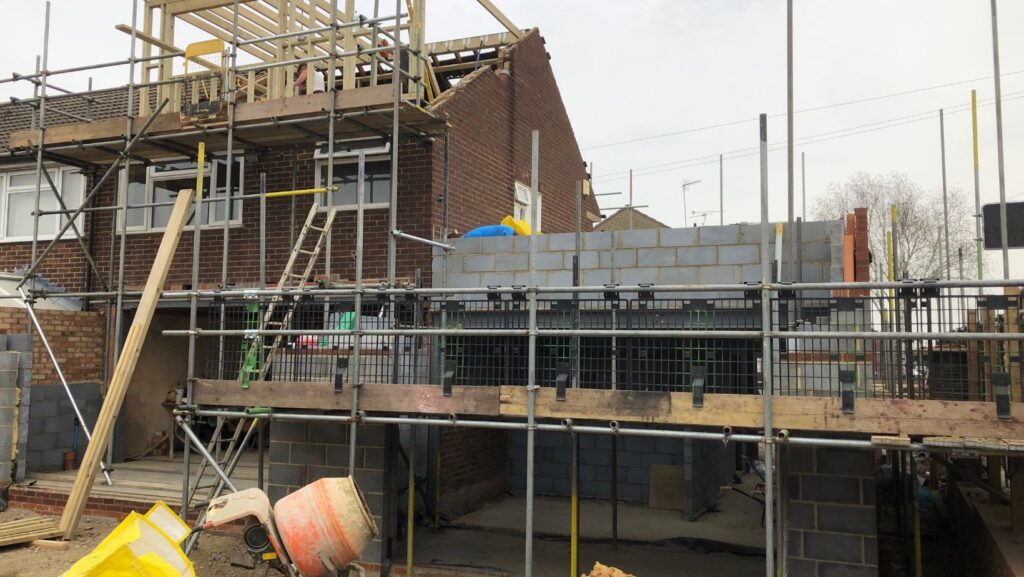Expanding your home is a big dream, but it can bring many questions. How much will it cost? What affects the price? Many homeowners worry about the cost of a house extension. Understanding the details can help you plan a successful project.
This guide will explain the main things to know about extending your home, so you can make smart choices that match your budget.
Contents
Table of Contents
ToggleUnderstanding Average Extension Costs
The cost of a house extension varies, but in the UK, the current cost benchmark is £2000/m2. This range depends on the materials, design, and type of extension. For example, single-story extensions are usually cheaper than multi-story ones.
Keep in mind that extension construction costs can go up because of architectural fees, planning permissions, and extra work like new roofing or foundations. Knowing these factors helps you plan your budget better.
Key Factors Influencing Extension Cost
When planning a home extension, several important factors affect the price:
Size and Type
The larger the extension, the more it will cost.

Affordable home extensions, including ground-floor extensions, are usually cheaper than building up.
Location
Where you live matters. Extensions in urban areas tend to cost more due to higher demand and living costs.
Materials
The materials you choose can impact the budget. High-quality materials cost more but last longer and look better.
Labor
The cost of skilled workers can vary by region. Getting multiple quotes helps you find the best price.
Permits and Inspections
You’ll need permits for your extension. Don’t forget to factor in the cost of HUD inspections, as they can add to your total.
Hidden Costs You Should Consider
Besides the main costs of building your extension, there are some hidden expenses to keep in mind. These include:
- Planning permission fees
- Surveying costs
- Utility adjustments
It’s important to have a contingency budget for any unexpected expenses during the building process. A good rule is to set aside about 10% of your overall budget for these surprises.
The Benefits of Planning Wisely
Planning your extension carefully can save you significant amounts of money in the long run. For example, clearly defining what you want from the extension and discussing your ideas with architects and builders upfront can lead to more precise quotes and avoid costly design changes later.

Additionally, always check multiple contractors and read reviews before making a decision. Investing time in researching can prevent you from overspending and ensure you receive quality work.
Making Your Extension Dreams a Reality
The average house extension cost is influenced by a myriad of factors, from materials to labor costs. By conducting thorough research and planning, you’ll position yourself to manage these costs effectively. Keep your priorities in check, and remember that the investment in your home can lead to significant returns, both in comfort and value.
Don’t forget to explore the necessary guidelines to ensure your project runs smoothly and meets all legal requirements. Start your home improvement to enhance your living space today!
Is this article helpful? Keep reading our blog for more.

